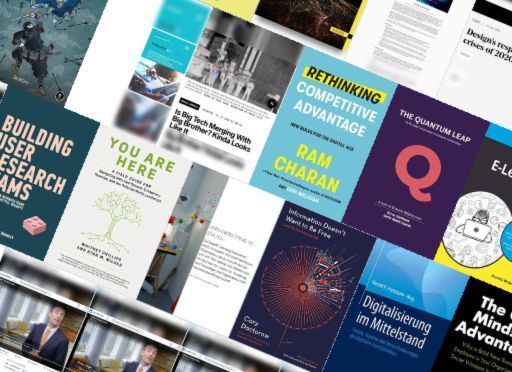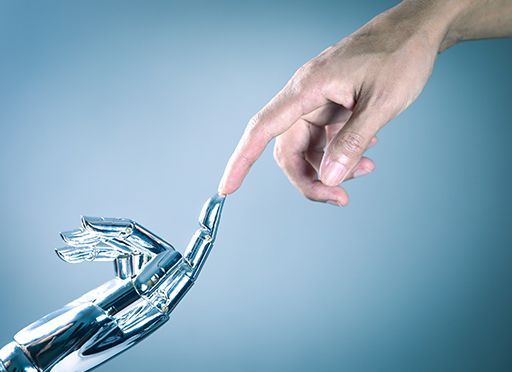China tech investment expert Kai-Fu Lee breaks down why China will likely dominate AI in the future.

AI and China’s Dominance
Advances in programming driven by algorithms are ushering in a new era of artificial intelligence (AI). Exploiting advances in deep learning, AI seems poised to replace humans in many cognitive and physical jobs. The largest AI firms are clustered in China and in the United States, but, according to Kai-Fu Lee, chairman of Sinovation Ventures focusing on Chinese high tech investments, China stands ready to dominate.
“Job-eating” AI
In March 2016, more than 280 million Chinese viewers watched a computer play the ancient Chinese game Go and defeat Korean Go master Lee Sedol. Google infused the winner, AlphaGo, with AI.
The match triggered a surge in China’s AI development. By 2017, Chinese venture capital firms provided 48% of worldwide VC funding for AI development, surpassing the United States’ share for the first time.
While barely noticed by most Americans, the five games drew more than 280 million Chinese viewers. Overnight, China plunged into an artificial intelligence fever. Kai-Fu Lee
AI could increase labor productivity on a scale unseen since the Industrial Revolution. Already, it will add $7 trillion to China’s economic output and $3.7 trillion to that of the United States’.
Lee warns that using deep learning AI to automate predictive analytics could replace up to 50% of US jobs by 2035, displacing warehouse workers, truck drivers, stock analysts, radiologists, quality control inspectors, paralegals, assembly line workers and accountants.
Leapfrogging Laptops
Budget smartphones initially enabled many Chinese to “leapfrog” laptops and use mobile phones to access the internet for the first time. By the end of 2017, China had more than 753 million smartphone users, often using mobile payment technology routinely. Chinese citizens make 50 times more payments with smartphones than Americans make.
China embraced the “O2O Revolution”: a surge in offline-to-online commerce with smartphone enabled service providers such as Uber. The O2O food delivery services fill Chinese city streets with delivery workers on scooters. By 2016, China racked up 20 million online food orders a day.
Mass Entrepreneurship and Innovation
On September 10, 2014, Then-premier Li Keqiang announced a policy to support innovation and tech investment, using the slogan: “mass entrepreneurship and mass innovation.” The government engineered growth through tech innovation, rejecting the traditional approach of increasing factory efficiency.
These entrepreneurs will have access to the other ‘natural resource’ of China’s tech world: an overabundance of data. Kai-Fu Lee
With more internet users than the United States and Europe combined, China provides vast quantities of online and offline behavioral data that helps Chinese companies succeed in AI. American internet companies tend to gather data only about online activity. Drawing on substantial government support, Chinese internet firms harvest real-world information to enrich their digital data, enhance their algorithmsand encompass an “alternate internet universe.”
Chinese companies Alibaba, Baidu and Tencent fund as much corporate AI research as Amazon, Facebook, Google and Microsoft. And Tencent owns an immensely valuable data ecosystem through its multipurpose WeChat app.
Gradual Changes
The AI revolution will manifest in four waves: internet AI, business AI, perception or sensory AI, and autonomous AI.
The first wave started in the early 2000’s, then went wide in 2012, when algorithms began performing as “recommendation engines,” delivering ads and other content to users. Business AI helps companies sort large volumes of data to find correlations. For example, China’s Smart Finance AI app provides small loans to smartphone users.
Major theoretical breakthroughs in AI have finally yielded practical applications that are poised to change our lives. Kai-Fu Lee
When it comes to perception AI, expect advances in recognizing faces, voices and the human landscape, as well as movement between the online and offline worlds, to become more seamless, creating new OMO, or “offline-merge-online,” environments.
Examples of OMO business models include “pay-with-your-face” technology and AI-based education customized to individual students.
Autonomous AI will manifest in widespread deployment of self-driving vehicles. Uber, Tesla, Google, Didi and Baidu are racing to turn a profit in this arena. Baidu is building an “AI City” 60 miles south of Beijing which will be the world’s first city developed to facilitate autonomous vehicles.
AI’s greatest potential, the author predicts, resides in “artificial general intelligence” (AGI), which would empower machines to do any human intellectual task. Conceivably, the ultimate AI advance would be “artificial superintelligence” – the singularity –featuring AI with superhuman powers of real-world comprehension and manipulation.
This artificial superintelligence will not come about for decades or even centuries, but when it does, it will prove to be the most important event in human history.
Worldwide Unemployment
The automation of physical work in the 20th century eliminated many unskilled jobs. In the decades ahead, Lee forecasts, automating cognitive work will have a similar destructive effect on white-collar jobs. Developing AI that emulates human cognition is turning out to be much easier than endowing a robot with even a toddler’s sensory or motor skills.
Significant as this jockeying between the world’s two superpowers will be, it pales in comparison to the problems of job losses and growing inequality – both domestically and between countries – that AI will conjure. Kai-Fu Lee
The AI industry’s tendency to support monopolies will exacerbate inequalities and undermine the self-correcting aspects of a free market economy. It will raise the overall standard of living as disruptive technologies create new businesses and destroy others.
The AI Economy
Silicon Valley supports the “three R’s”: Redistributing income, reducing work hours and retraining workers.
AI will be China’s greatest opportunity to catch up with – and possibly surpass – the United States. But more importantly, this shift will create an opportunity for all people to discover what makes us human. Kai-Fu Lee
Some policymakers support a “social investment stipend” i.e. a government sponsored wage – for those in education, community service and caregiving. Funding could come from taxes on massive profits as AI corporate winners reap colossal wealth.
Pragmatic overview
Kai-Fu Lee positions himself as a singular expert in Chinese AI and AI’s potential in general. His tech investing success grants him that credibility. Lee provides a helpful, pragmatic overview that may surprise non-Chinese investors; the author wants investors from other countries to understand China’s commitment to and support of AI and related technologies, and their potential impact. Lee’s insights will prove invaluable to anyone seeking a clear, big picture of AI worldwide today.
Kai-Fu Lee also wrote My Journey into AI: The Story Behind the Man Who Helped Launch 5 A.I. Companies Worth $25 Billion and Making a World of Difference: Dr Kai-Fu Lee Autobiography. He co-wrote AI 2041: Ten Visions for Our Future with Chen Qiufan.







